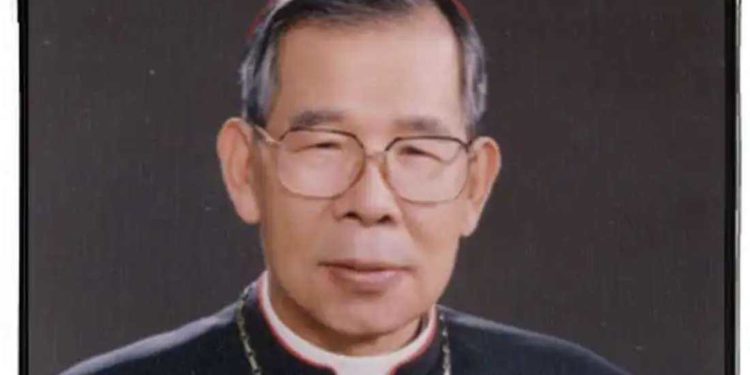Bishop Bruguiere, Cardinal Kim and Father Andrew Bang are credited for lasting impacts on the local Church
Cardinal Stephen Kim Sou-hwan (1922-2009), the first Korean cardinal is hailed as a Catholic and national hero. (Photo: www.myhero.com)
Seoul archdiocese in South Korea has officially launched the cause of canonization for three prominent Catholic clergymen including a French missionary bishop and the first Korean cardinal.
The Archdiocesan Committee for Beatification and Canonization finalized the decision to pursue the canonization of Bishop Barthelemy Bruguiere, Cardinal Stephen Kim Sou-hwan and Father Moo Ah Andrew Bang Yoo-ryong, archdiocesan website Good News reported on March 28.
Bruguiere (1792-1835) from the Paris Foreign Mission Society was the first apostolic vicar of Korea, Kim (1922-2009) was archbishop of Seoul from 1968-1998 and Bang (1900-1986) was the founder of Korea’s first native religious order, the Clerical Congregation of the Blessed Korean Martyrs.
During the meeting led by Archbishop Peter Chung Soon-taek on March 23, auxiliary Bishop Job Yobi Koo of Seoul was appointed the chairman of the committee to pursue canonization for the candidates.
Father Park Seon-yong, the vice-chairman, was entrusted with the responsibility of a petitioner with the authority to interact with the Vatican’s Dicastery for the Causes of Saints and other ecclesiastical judges.
Kim is widely regarded as a Catholic and public hero who led the Church in South Korea through one of its toughest times.
Stephen Kim Sou-hwan was born in 1922 and ordained a priest in 1951. He studied philosophy at the Catholic University of Jochi Daigaku in Tokyo and sociology at Munster University in Germany.
He became bishop of Masan diocese in 1966 and archbishop of Seoul in 1968. Pope Paul VI elevated him to the position of a cardinal in 1969.
He is credited for intensified evangelization efforts in Seoul and worked wholeheartedly towards implementing the spirit of Vatican II with lay participation.
He prioritized interfaith dialogue and the coordination of shared humanitarian and charitable efforts during his time as the Seoul archbishop.
He was president of the Catholic Bishops’ Conference of Korea from 1973 to 1977 and president of the Federation of Asian Bishops’ Conference (FABC) from 1974 to 1977.
Kim is hailed for leading and strengthening the Korean Church amid various trials and tribulations including political turmoil under military regimes.
Reportedly, he reprimanded President Chun Doo-hwan, who seized power in a military coup in 1979, by comparing his illegal power grab to “an outlaw gunfight in a Western movie.”
His brave stance for democracy and human rights during his nation’s bloody transition from military rule to democracy made him a highly respected clergyman before a broad section of Korean society before his death on Feb. 16, 2009.
Bruguiere was the first apostolic vicar of Korea and the first coadjutor bishop of Siam (Thailand). He died in China and was buried there. His mortal remains were moved and reburied in a cemetery in Seoul in 1931.
Bang dedicated himself to the promotion of ‘inculturated Christianity’ in Korea and a new Korean way of religious life during a period when the country was under Japanese imperialism and mostly foreign missionaries were at the helm of the Church.
The priest realized the most effective way of propagation of the faith in Korea is the Korean way of language and thinking.
With this vision, he first founded the Congregation of Sisters of the Blessed Korean Martyrs on April 21, 1946, at Gae Seong Catholic Church (now in North Korea).
Then, he founded the Clerical Congregation of the Blessed Korean Martyrs on October 30, 1957, which became the first native male religious order.
Latest News
Credit: Source link




